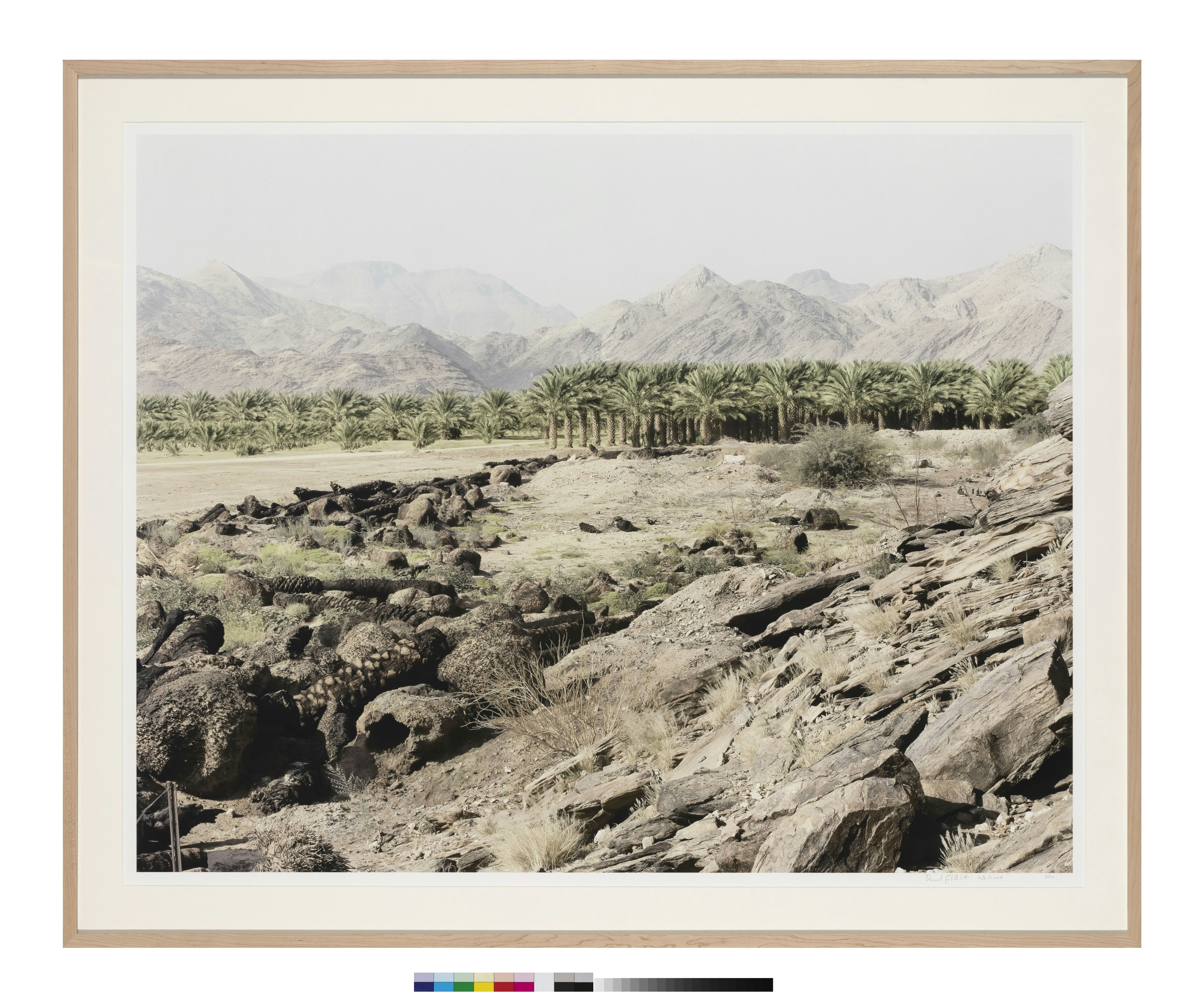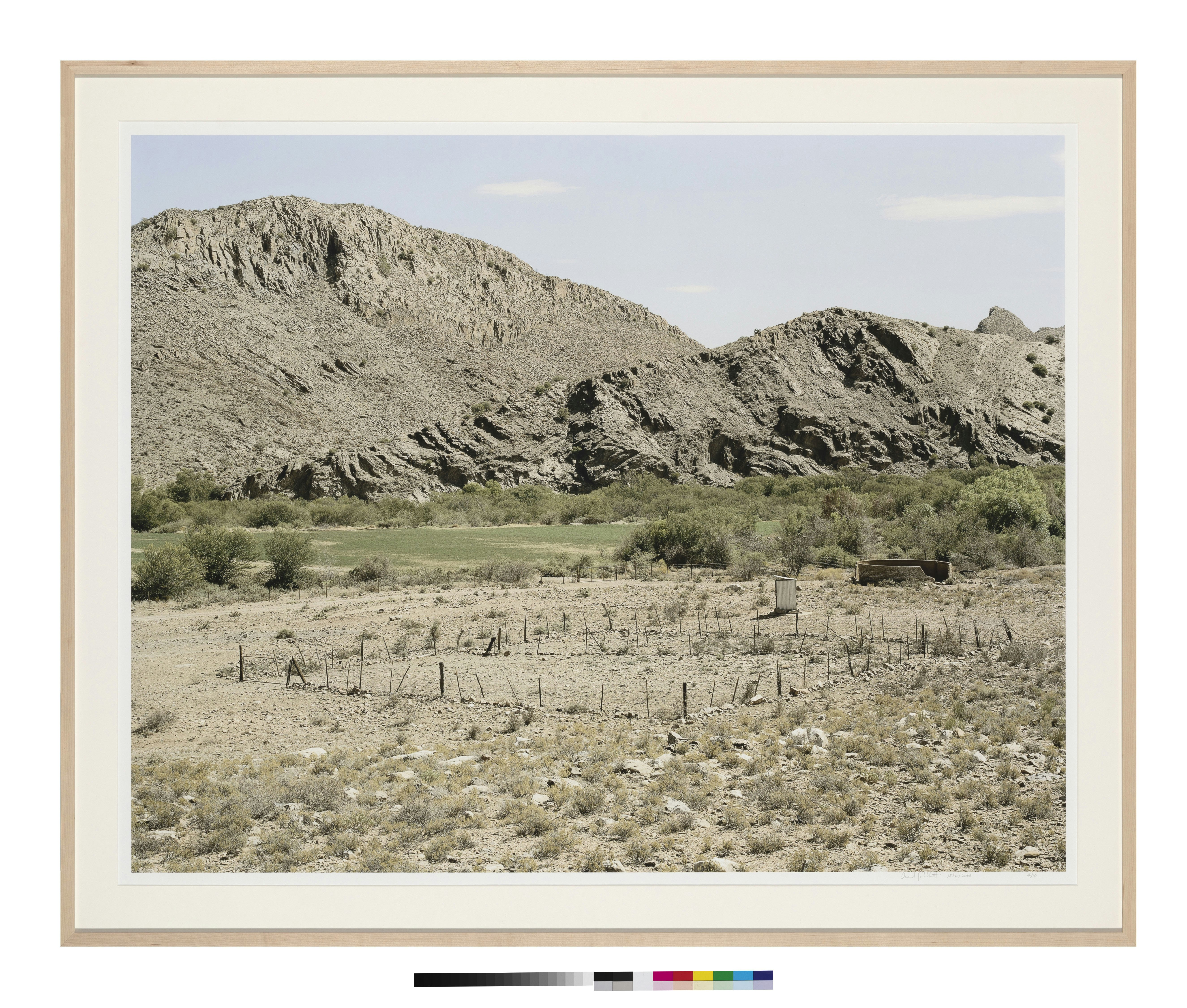Zanele Muholi and David Goldblatt - From South Africa

- Date
- From 09.09.2022 to 08.01.2023
- Place
-
Espace Louis Vuitton München
-
Maximilianstrasse 2a
-
80539 München
- Phone
-
+49 89 55 89 38 100,
- Hours
-
Monday–Friday : 12p.m.–7 pm; Saturday: 10 am–7 pm
The Espace Louis Vuitton München is pleased to present From South Africa as part of the Fondation Louis Vuitton’s “Hors-les-murs” programme. This exhibition displays photographic works by the two South African artists, pursuing the Fondation Louis Vuitton’s mission of showcasing Collection holdings for a broader international audience at the Espaces Louis Vuitton in Tokyo, Munich, Venice, Beijing, Seoul and Osaka.
From South Africa presents Goldblatt’s series of colourful landscape photographs that capture the South African people’s complex relationship to their land and explore the meaning of structures – Goldblatt’s term for architecture – in the wake of a new, post-Apartheid national consciousness. Goldblatt’s work is dovetailed with photographs from Zanele Muholi’s Faces and Phases series consisting of dignified portraits of Black South African lesbians, transgender and gender non-conforming individuals. Moreover, the show features works from Muholi’s Somnyama Ngonyama series in which the artist appears in autoportraits evoking stereotypes about Africa and femininity to reverse and reject clichés and archetypes related to their own condition.

© Zanele Muholi Courtesy of Stevenson Gallery, Cape Town/Johannesburg

In 1989, Goldblatt founded the Marke t Photo Workshop in Johannesburg to support the training of young photographers who were marginalised by the country’s system at that time. In 2001, Zanele Muholi enrolled in the Market Photo Workshop to study Advanced Photography and became a mentee of Goldblatt. Until Goldblatt’s death, the two maintained a strong personal connection. Inspired by the mentor’s politically committed work, the pursuit of reflecting upon and resisting persistent injustice towards the LGBTQIA+ community in post-Apartheid South Africa is central to Muholi’s artistic practice.
Their membership and active involvement in this community allows Muholi to document LGBTQIA+ people’s realities from an inside perspective creating an intimate and uncompromisingly truthful oeuvre of this marginalised community’s everyday life. Going beyond pure social documentary, Goldblatt and Muholi’s photographic bodies of work share the activist aim of challenging their country’s past and present history by tackling issues of personal and societal identity.


Goldblatt’s subject matter spanned the entire country geographically and politically from sweeping landscapes of the Karoo desert, to the arduous commutes of migrant Black workers, forced to live in racially segregated areas. Chronicling South Africa during Apartheid, Goldblatt’s powerful monochrome photographs reveal the stark contrast between the lives of Blacks and Whites, as well as the ways that public structures have made manifest the citizens’ self-image.
Zanele Muholi meshes their work in photography, video, and installation with human rights activism to create visibility for the Black lesbian, transgender and gender non-conforming communities of South Africa and beyond. For over twenty years, Muholi has been making photographs that document and celebrate the lives of Black, lesbian, gay, trans, queer and intersex communities.

© Zanele Muholi Courtesy of Stevenson Gallery, Cape Town/Johannesburg
Les artistes
Zanele Muholi
Born 1972 (South Africa), Zanele Muholi lives and works in Johannesburg. They grew up in a Durban township. After settling in Johannesburg at the age of 19, they studied graphic design and in 2001 enrolled at the Market Photo Workshop, the school founded by David Goldblatt.
Following their first exhibition in 2004 at the Johannesburg Art Gallery, the artist worked for the magazine Behind the Mask and cofounded the Forum for the Empowerment of Women, based in Gauteng. Muholi defines themself as a “visual activist”. Their work seeks to shine a light on a marginalised lesbian community, which is often a victim of aggression. Works goes far beyond social documentary to tackle questions of identity head-on. The series Faces and Phases Follow Up – begun in 2006 and comprising 300 portraits – best represents the artist's approach. Each model was photographed at different stages of their life. “I'm trying to establish a relationship based on the mutual understanding of what it means to be a black lesbian woman today,” the artist explains.

David Goldblatt
Born into a Jewish family who had settled in South Africa in 1893, David Goldblatt became interested in photography at the age of 17. In 1948, he began exploring photography while enrolled in business studies.
In 1963, he turned entirely to photography. Preferring to shoot outside, Goldblatt worked for various media outlets while also developing his own projects, and in 1989, he founded the Market Photography Workshop in Johannesburg. His frequent collaborations with writers and journalists reflect his esteem for literary readings of his images. Goldblatt’s photographs appear as series in which he documents his country’s history. “In the 1980s and 1990s, I photographed structures that we, South Africans, created during Baasskap [apartheid], which was enforced from the 1960s to the 1990s, when whites gradually asserted their power over all of South Africa and its people. I was looking for and trying to illustrate the values that we expressed through those structures with images and words. Since 1999, five years after the first democratic elections which put the current African National Congress in place under Nelson Mandela, I’ve undertaken a similar photographic process.” Goldblatt worked in black and white during apartheid. In 1994, his transition to colour accompanied a hope kindled by the arrival of democracy. Since then, he has returned to shooting in black and white. “Black and white is also in sympathy with the feelings of anger, disappointment and fear that I feel at the trashing of democratic values that we are witnessing. Our democracy is very fragile. It could be lost.”


